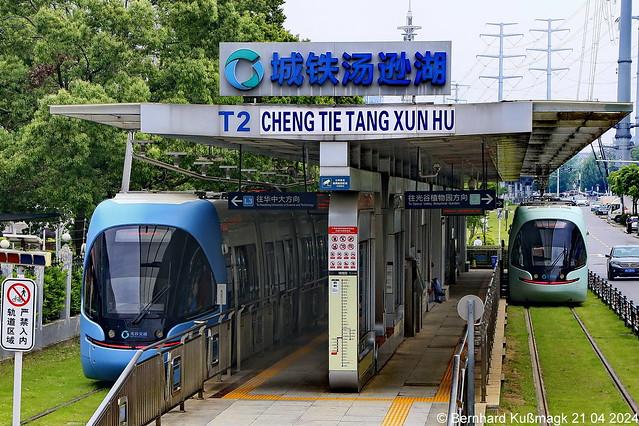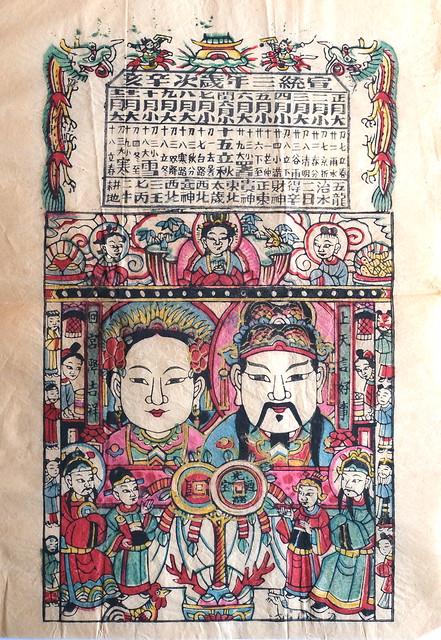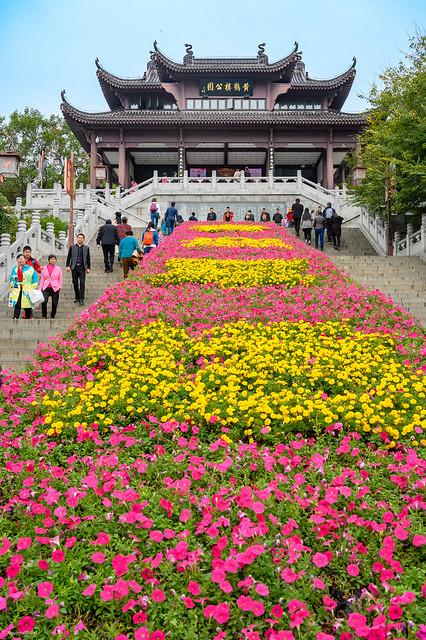



Wuhan
Overview
Wuhan, the capital of Hubei province, is a vibrant metropolis steeped in history and culture. Often referred to as the "Chicago of China" due to its position as a major transportation hub, the city lies at the confluence of the Yangtze and Han Rivers. This strategic location has played a pivotal role in its historical significance, making it a center for trade and commerce since ancient times. Visitors will find that the atmosphere in Wuhan is a blend of the old and the new, with ancient temples standing alongside modern skyscrapers, creating a visually striking contrast.
Historical Significance
Wuhan's rich history dates back over 3,500 years, evident in its numerous historical sites. The Yellow Crane Tower is the city's most famous landmark, renowned for its beautiful architecture and poetic associations. Originally built in 223 AD, this tower has been rebuilt multiple times and offers panoramic views of the Yangtze River. Another important site is the Wuhan Museum, which showcases artifacts from various dynasties, reflecting the city's pivotal role in Chinese history. The Guqin Pavilion, dedicated to the traditional Chinese string instrument, also highlights the city's cultural depth and its connection to traditional music.
Culture and Atmosphere
Wuhan boasts a lively cultural scene, with a unique blend of local customs and modern influences. The city is famous for its delicious street food, particularly the iconic Re Gan Mian (hot dry noodles), which is a must-try for any visitor. The local cuisine is known for its bold flavors, featuring dishes that incorporate fresh ingredients from the surrounding region. As you wander through the bustling streets, you’ll be enchanted by the aroma of food stalls and the sounds of vendors calling out to passersby.
The city’s atmosphere is particularly vibrant during festivals, such as the Wuhan International Flower and Garden Expo and the Wuhan Yangtze River International Music Festival, which attract visitors from around the globe. These events showcase local culture, art, and music, providing a perfect opportunity for travelers to immerse themselves in Wuhan's unique local characteristics.
Local Characteristics
One of the unique aspects of Wuhan is its diverse architecture, which reflects its historical evolution. Strolling through the Han Street shopping district, visitors will find a mix of traditional and contemporary designs, housing everything from high-end boutiques to traditional crafts. The East Lake, one of the largest urban lakes in China, offers a serene escape from the urban hustle and bustle. Visitors can enjoy scenic walks, bike rides, and even boat tours, making it a perfect spot for relaxation and leisure.
Wuhan is also known for its friendly locals who take pride in their city. Engaging with residents can provide travelers with insights into daily life, local customs, and hidden gems that may not be in guidebooks. Whether it's sharing a cup of tea in a local teahouse or participating in a tai chi session in one of the parks, the warmth of the Wuhanese people enhances the overall travel experience, making it memorable and engaging.
In conclusion, Wuhan is a city that beautifully illustrates the duality of ancient and modern China. From its historical landmarks and rich cultural traditions to its dynamic street life and culinary delights, the city offers a myriad of experiences for travelers seeking to explore beyond the typical tourist paths. With its welcoming atmosphere and vibrant local culture, Wuhan promises an unforgettable journey that captivates the heart and mind.
Other towns or cities you may like in China
Explore other cities that share similar charm and attractions.



